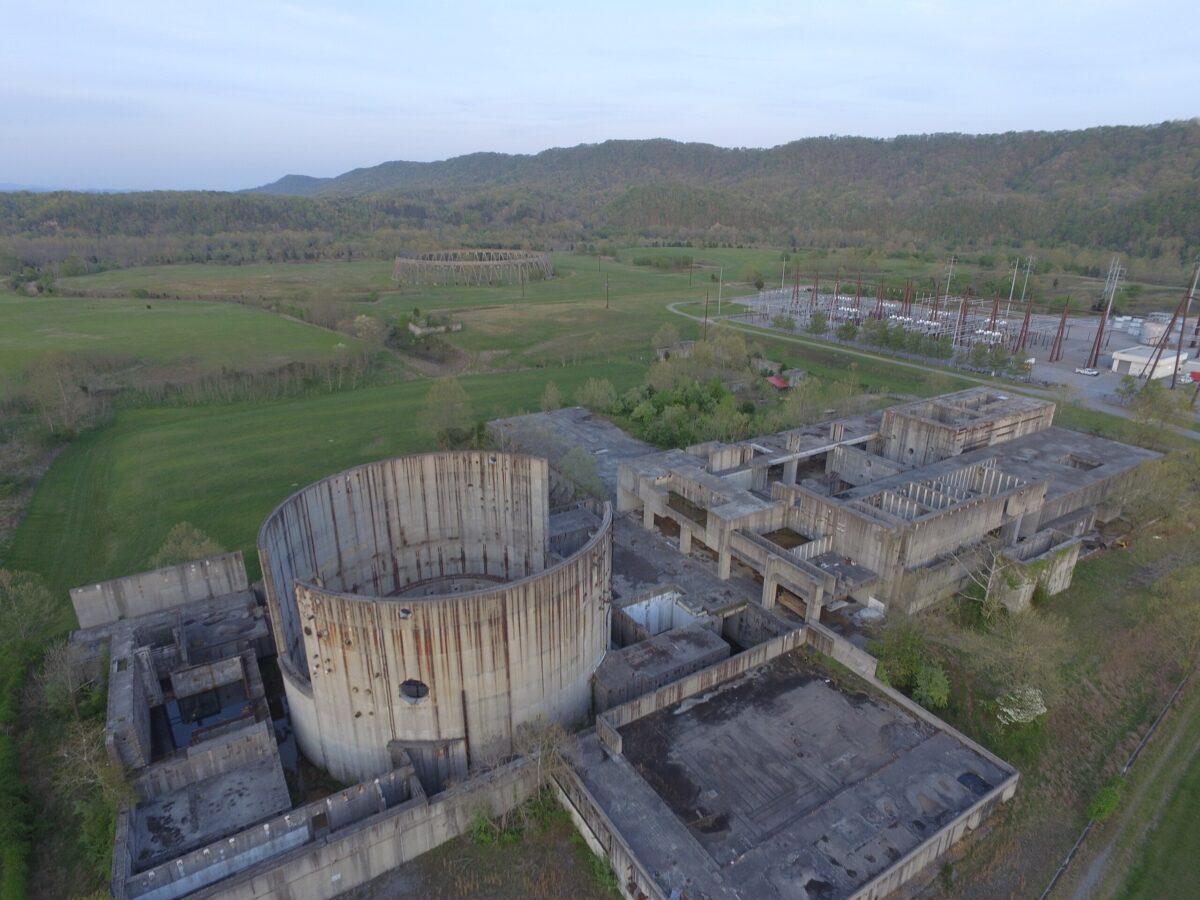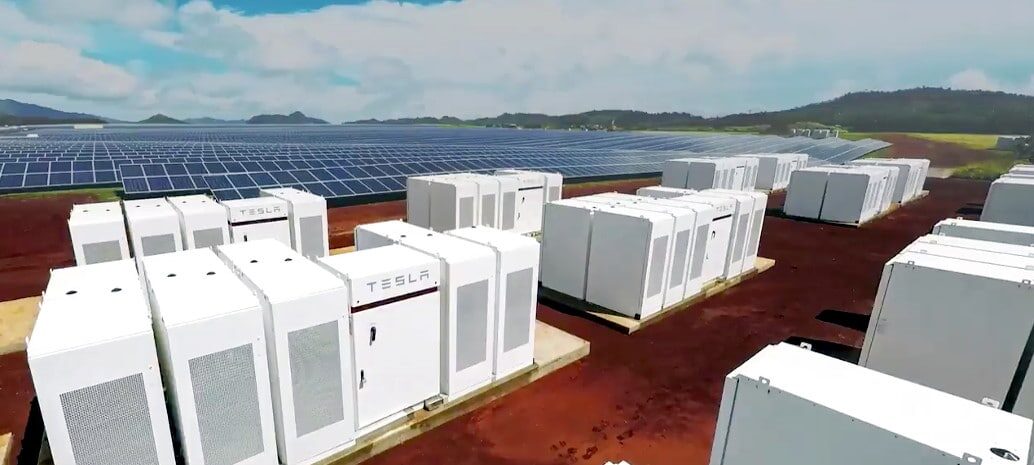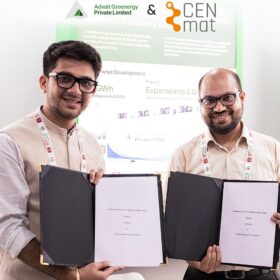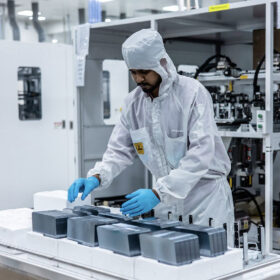From pv magazine USA
Pivotal Manufacturing has acquired 140 acres where a scandal-ridden nuclear plant was abandoned 40% into construction with more than $2.6 billion in debt. It has signed a long-term ground lease with Highland Materials for a polysilicon advanced manufacturing facility and a campus of other energy projects.
According to the US Department of Energy (DOE), Highland’s manufacturing facility will have an initial annual capacity of 16,000 MT of solar-grade polysilicon at “less than standard cost.” At full capacity, The DOE said the facility will produce 20,000 metric tons after four years, which is the equivalent of 11 GW of solar cells.
Much of the critical infrastructure, such as a high-voltage interconnect, flexible zoning and a development-friendly permitting environment are heirlooms of an incomplete nuclear power facility that had amassed more than $2.6 billion and was just 40% complete when it was canceled.
US-based Highland Materials, a purified polysilicon, and aluminum and silicon alloy manufacturer, said it is developing a next-generation production platform designed to meet rising domestic and international demand for such critical technologies.
In April 2024, Highland Materials said it had secured $255.6 million in Qualifying Advanced Energy Project Credit (48C) tax credits to build a polysilicon plant in the United States.
The Inflation Reduction Act (IRA) expanded the 48C credits to provide an additional credit allocation of $10 billion, with $4 billion set aside for projects in designated energy communities. The 48C credit is an tax credit of up to 30% of qualified investments for qualifying projects, provided they meet prevailing wage and apprenticeship requirements.
When it awarded the tax credits, the DOE said Highland was working closely with Northeast State Community College to develop and implement workforce development including Department of Labor-certified apprenticeship programs, along with other community support programs.
Highland said it chose Phipps Bend for its exceptional power infrastructure, strategic location within the TVA region, and development-ready environment capable of supporting large-scale, high-precision manufacturing.
Pivotal and Highland said they are working closely with local, regional, and federal stakeholders – including Hawkins County, the Tennessee Valley Authority, Holston Electric Cooperative, and the State of Tennessee – to deliver infrastructure, incentives, and economic development to support both near-term and long-term phases of the campus. The project will provide over 400 high-paying full-time manufacturing jobs, according to Highland.
The advanced manufacturing facility will comprise just a portion of the property. The 140-acre site, “The Phipps Bend Advanced Manufacturing & Technology Campus” is planned to be a heavy-infrastructure location for operators who require high-power infrastructure and scale, Pivotal Partners said.
The campus has direct on-site access to a regional transmission interconnect owned by the Tennessee Valley Authority, a federally owned electric utility corporation.
Much of the critical infrastructure, such as a high-voltage interconnect, flexible zoning and a development-friendly permitting environment are heirlooms of an incomplete nuclear power facility that amassed more than $2.6 billion to reach just 40% of its construction when it was canceled.
While no reactors were ever brought online, Pivotal Partners said the site retains a “powerful legacy”: significant utility infrastructure, a strategic location within the TVA transmission network and a regional development mindset rooted in energy-intensive industry. “Today, those attributes provide a differentiated foundation for advanced manufacturing and critical-technology operations,” Pivotal Partners said.
Highland said its energy-efficient process “has a much smaller footprint than that of other silicon manufacturing methods and a much lower power consumption per kg produced.” Its process can produce one kilogram of silicon with 20 to 40 kWh per kilogram, according to Highland.
The plant will use a scaled-up version of an aluminum-silicon alloy system that smelts the impure raw silicon with pure aluminum. This has a lower melting temperature than traditional methods, which enables the process to require less energy, Highland said.
The land first began to be put to use for renewable energy in 2017 when United Renewable Energy installed a 1 MW solar project beside the towers of nuclear project’s 35-year-old concrete ruins.
Pivotal Manufacturing Partners is a real estate investment platform built to support the rapidly growing reshoring trend in U.S. advanced manufacturing and critical technologies. The firm said its focus is to invest directly at the intersection of power and real estate, acquiring, developing, and managing large-scale industrial properties with the advanced infrastructure needed to support power-intensive manufacturing processes.
This content is protected by copyright and may not be reused. If you want to cooperate with us and would like to reuse some of our content, please contact: editors@pv-magazine.com.









By submitting this form you agree to pv magazine using your data for the purposes of publishing your comment.
Your personal data will only be disclosed or otherwise transmitted to third parties for the purposes of spam filtering or if this is necessary for technical maintenance of the website. Any other transfer to third parties will not take place unless this is justified on the basis of applicable data protection regulations or if pv magazine is legally obliged to do so.
You may revoke this consent at any time with effect for the future, in which case your personal data will be deleted immediately. Otherwise, your data will be deleted if pv magazine has processed your request or the purpose of data storage is fulfilled.
Further information on data privacy can be found in our Data Protection Policy.